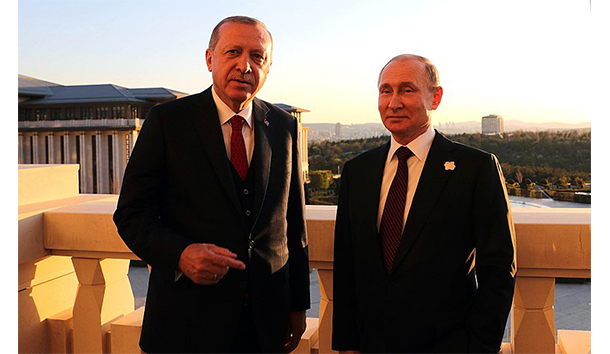A successful national leader (“good” or “bad”) is able to redefine the terms of what is politically possible in accordance with his values, and to produce durable desired outcomes. Lincoln, FDR, and Reagan come to mind at home, and Churchill, De Gaulle, and Deng Xiaoping abroad. Very few are able to effect a profound, long-lasting transformation of their societies. Hitler, Mussolini, and Stalin tried hard but failed; Emperor Meiji, Mahatma Gandhi, and Mustafa Kemal Atatürk succeeded.
On these terms, Turkey’s President Recep Tayyip Erdogan is the most successful major-country political leader in today’s world. Since 2002 he has craftily subverted Atatürk’s legacy while paying lip service to its tenets, and nullified the army as a political factor while grooming a new generation of loyal post-Kemalist officers.
After winning 53 percent of the vote in the election on June 24, at the age of 64 Erdogan is now a head of state and government with unprecedented powers and an effectively unlimited mandate. Empowered to rule by decree and appoint judges, he is an autocrat in all but name. His Justice and Development Party (AKP) won a reduced majority in separate parliamentary elections, necessitating an alliance with the overtly chauvinistic Nationalist Movement Party (MHP), but this is a minor irritant since the role of the National Assembly has been decisively reduced.
Eight years ago President Obama referred to Turkey as a “great Muslim democracy.” He was right: Already then Turkey had ceased to be a democracy in any conventional sense. This is fine with Erdogan, who sees elections strictly as a means to achieving his desired ends. Two decades ago he memorably declared that “democracy is like a train: you get off once you have reached your destination.” Over the past 16 years he has won 14 elections or referenda and lost none. His majorities were sometimes razor-thin, and his methods—notably media control—are light years away from the Marquess of Queensberry Rules; but at the same time his sense of timing and his skill in exploiting his opponents’ weaknesses have enabled him to disregard critics at home and abroad.
By blending Islamic piety with nationalism Erdogan has created a massive power base in the Anatolian hinterland and in the working-class districts of Turkey’s predominantly secular western cities. This machine has enabled him to make the process of re-Islamization of the Turkish state and society irreversible. Abroad, he has pursued an aggressively neo-Ottoman strategy on three key fronts: in the Balkans, in the Arab world, and in the mostly Muslim regions of the former Soviet Union. Turkey’s growing clout is a rare example of a collapsed great power making a comeback. It has reshaped the geopolitics of the Greater Middle East and made Ankara a key factor in any regional equation.
In the years ahead Turkey will follow an ever more assertive foreign policy, especially in view of the AKP’s alliance with the MHP. Erdogan will quietly dampen his hostility to Syria’s President Bashar al-Assad, both in the interest of improved relations with Russia and in order to legitimize the establishment of a primarily anti-Kurdish zone of Turkish control in northwestern Syria. He will continue to expand Turkey’s soft power in the Balkans, with the focus on the majority-Muslim parts of Bosnia, Kosovo, northern Macedonia, and southern Bulgaria. Erdogan’s spectacular election rally in Sarajevo on May 20 was a clear indication that his Turkey sees its former imperial possessions as legitimate targets not only of cultural and economic diplomacy but of outright political penetration.
Erdogan’s relations with the U.S. are now at a low point. Turkey demands the extradition of the Islamic preacher Fethullah Gülen, whom Erdogan accuses of masterminding the failed coup d’etat two years ago and who continues to reside in rural Pennsylvania. President Trump’s recognition of Jerusalem as Israel’s capital last December and subsequent move of the U.S. embassy there have prompted Erdogan to declare that “America has chosen to be a part of the problem, not a solution.” His decision to buy Russia’s S-400 air defense system has angered Washington and prompted calls from Congress to deny Turkey the purchase of 100 F-35 fighters. Most seriously of all, American support for the Syrian Kurds is seen by Erdogan as an existential threat to his country’s integrity.
The Trump administration should continue to refuse Gülen’s extradition. Whether he has conducted a long-range operation is unknown, and Erdogan has not provided any evidence, but it is certain that he would not get a fair trial in today’s Turkey. In addition, the U.S. should not sell offensive weapons systems to Turkey—F-35s included—as this would be bound to have a destabilizing effect in a region already armed to the teeth.
The optimal strategy for the United States would be to disengage from Syria and leave the potential quagmire before it is too late. No vital American interest is at stake, and the policy of supporting Syria’s Kurds has never made strategic sense. Since Erdogan is here to stay, this policy should be terminated in favor of an attempt to reboot relations with Ankara on the basis of transactional realism.

Leave a Reply